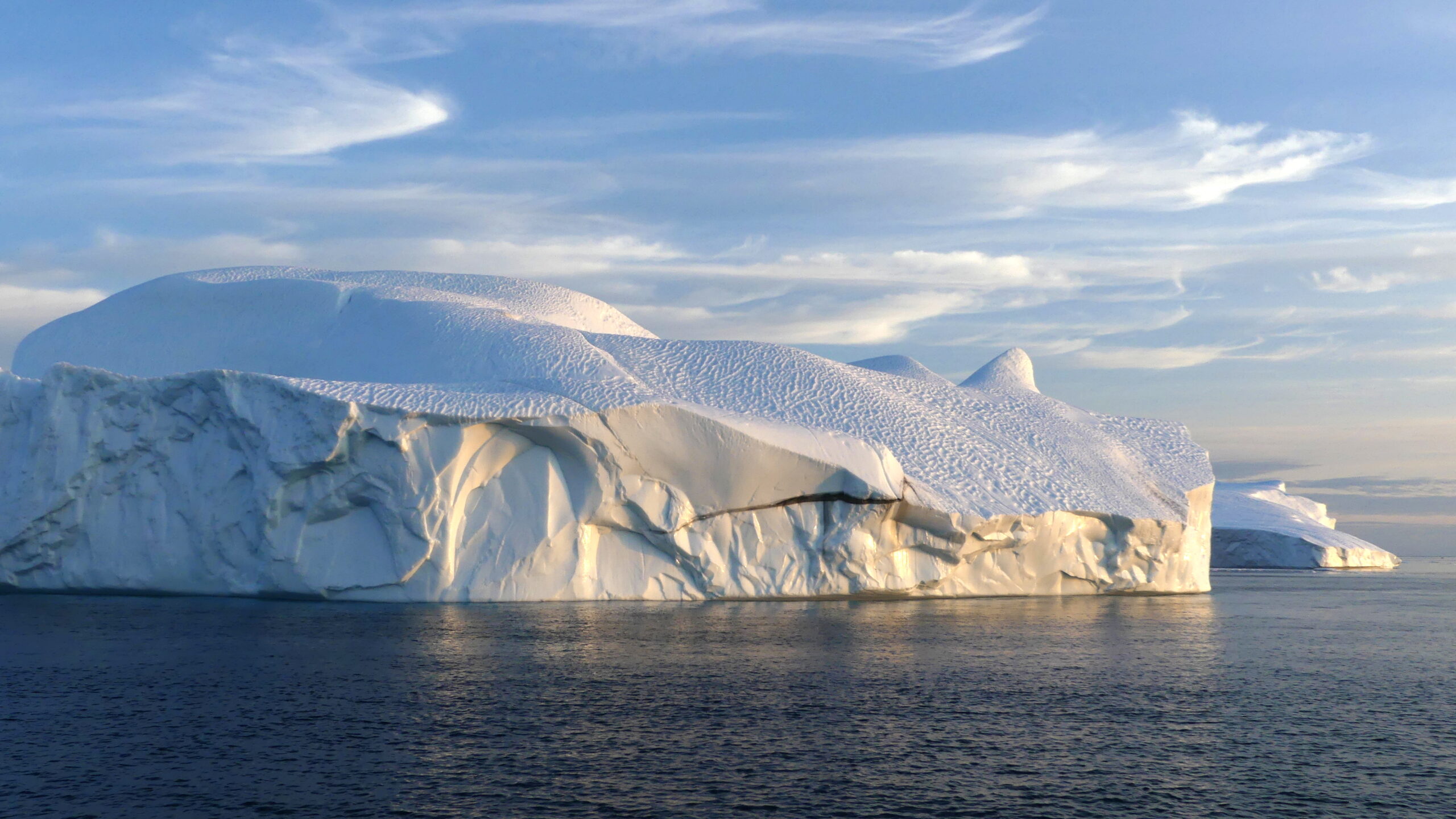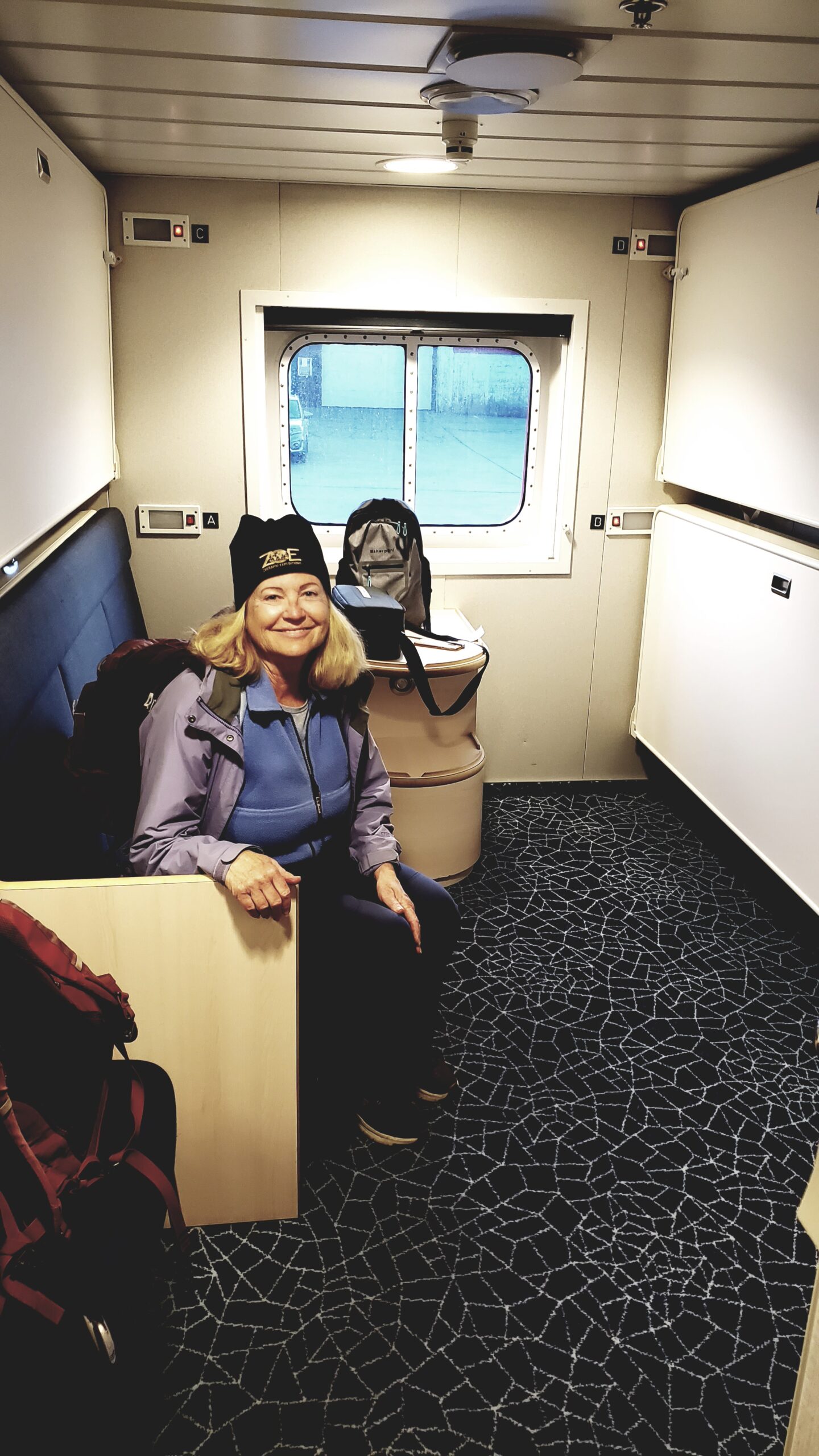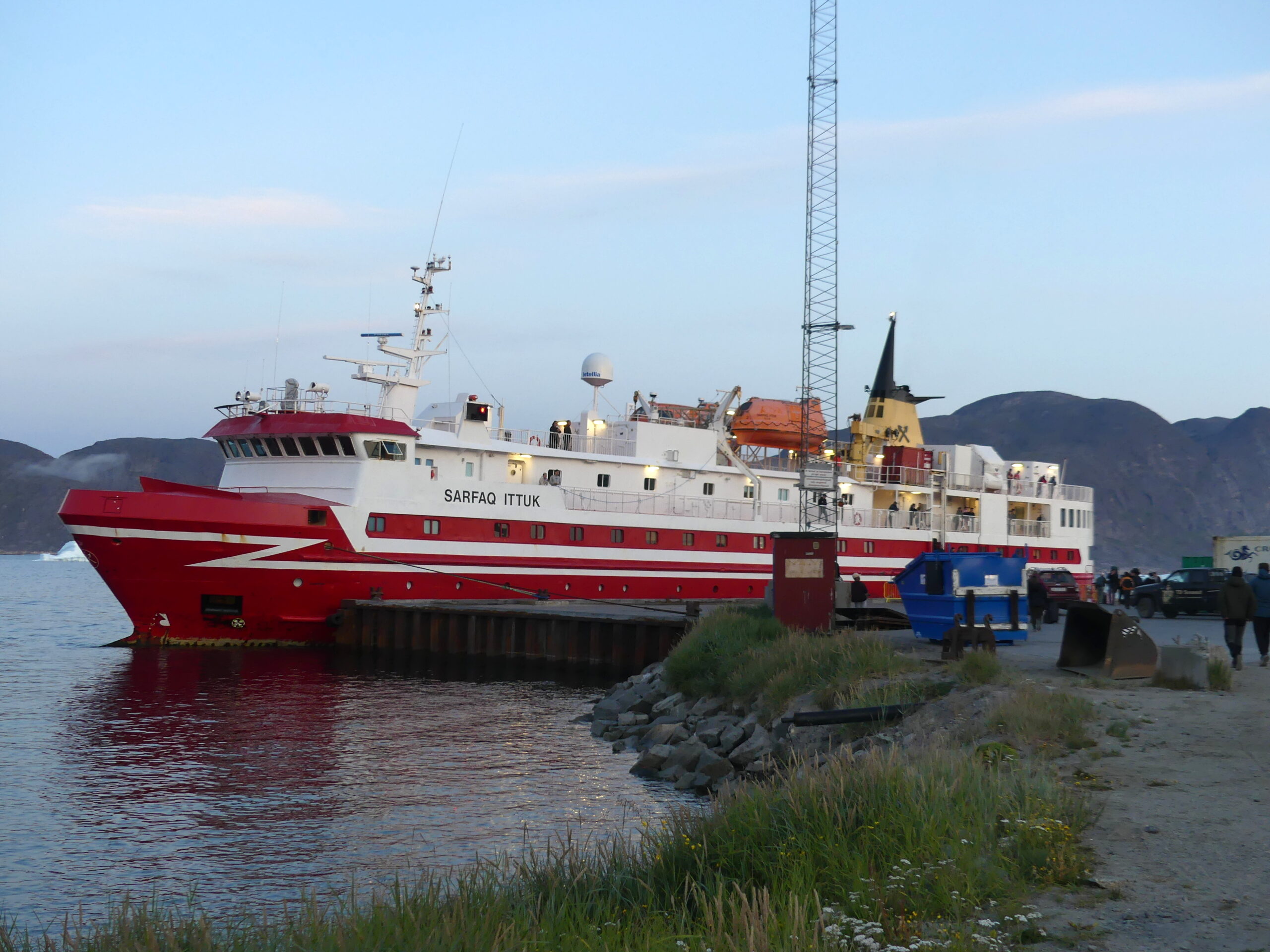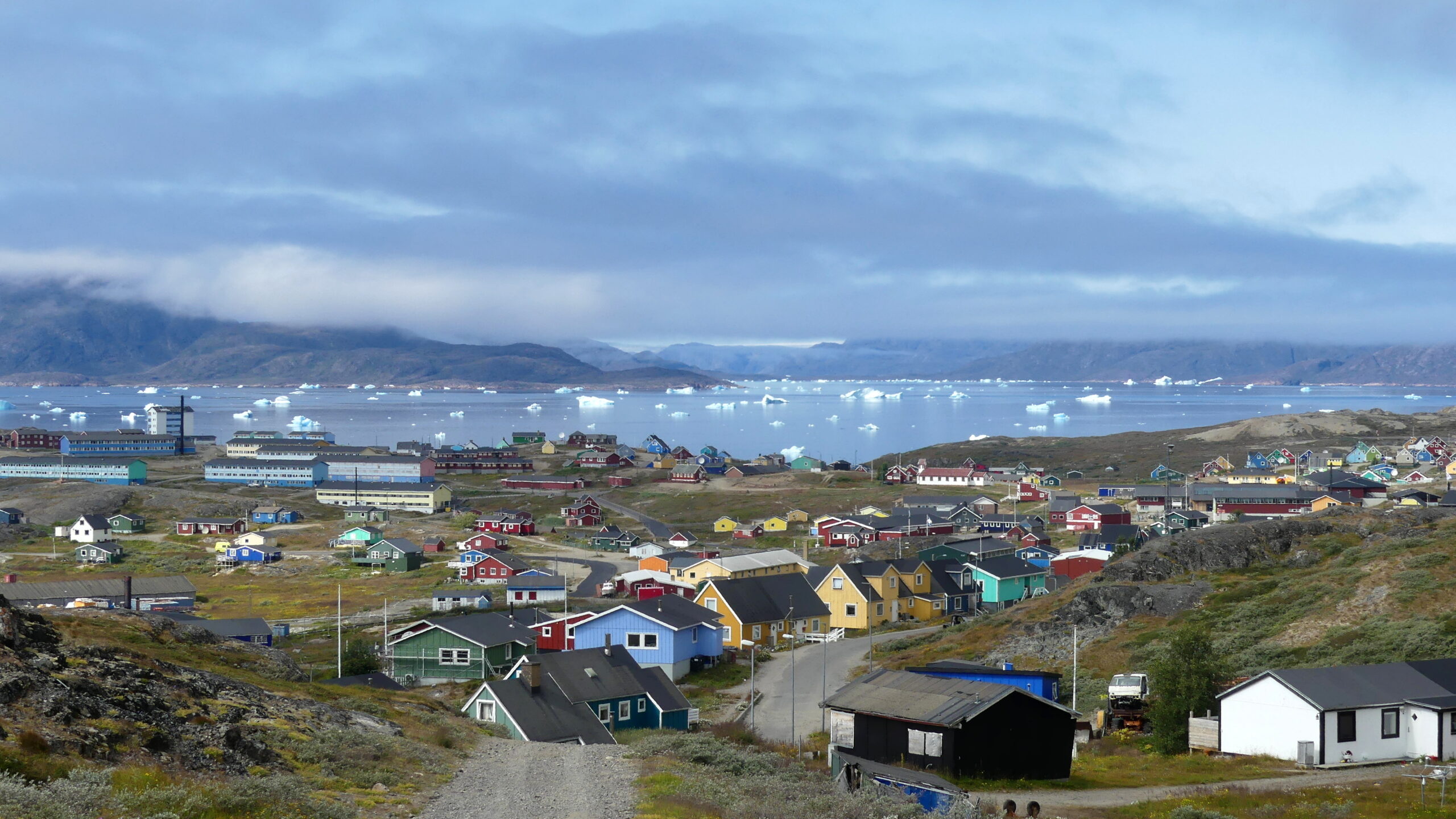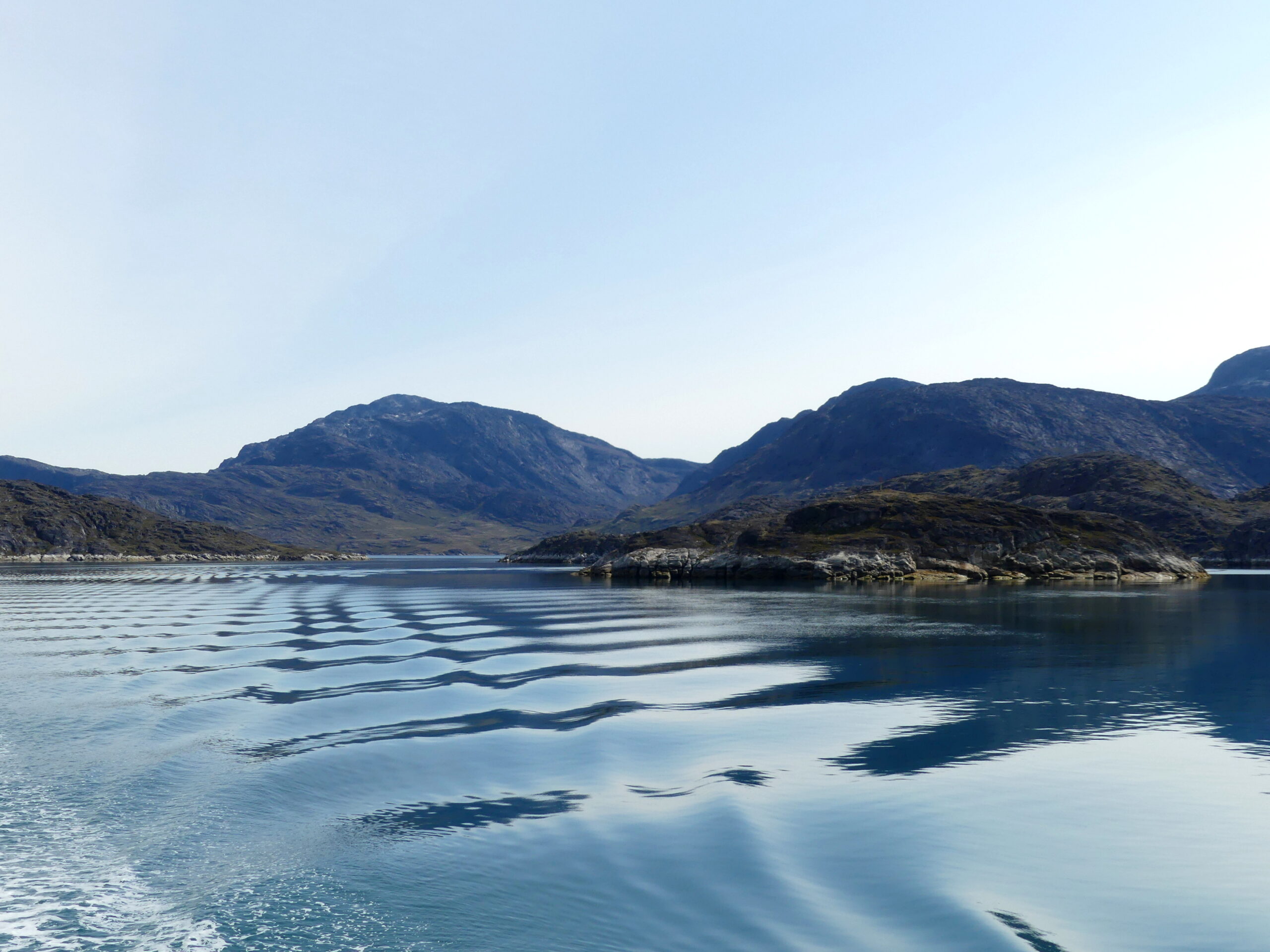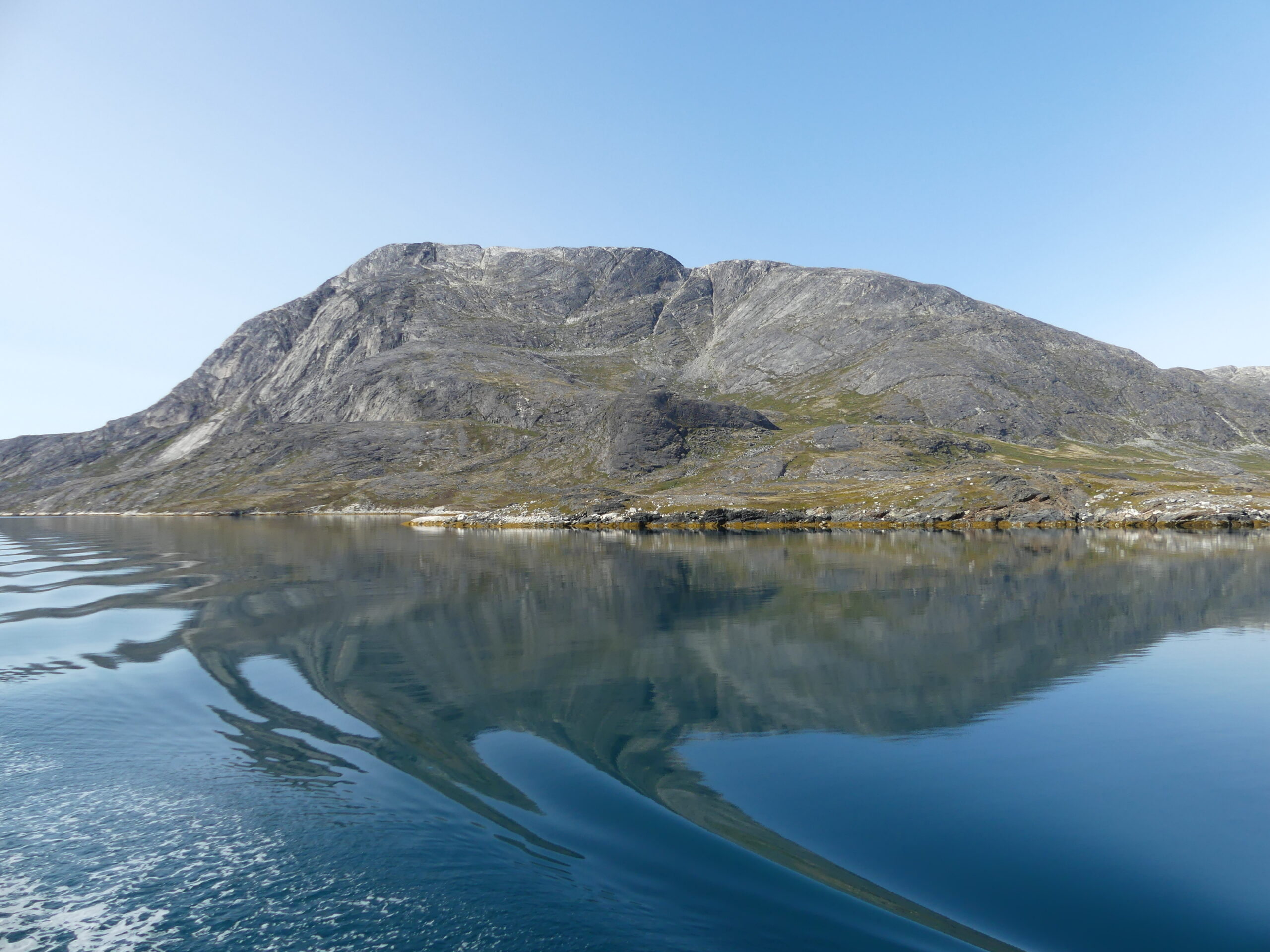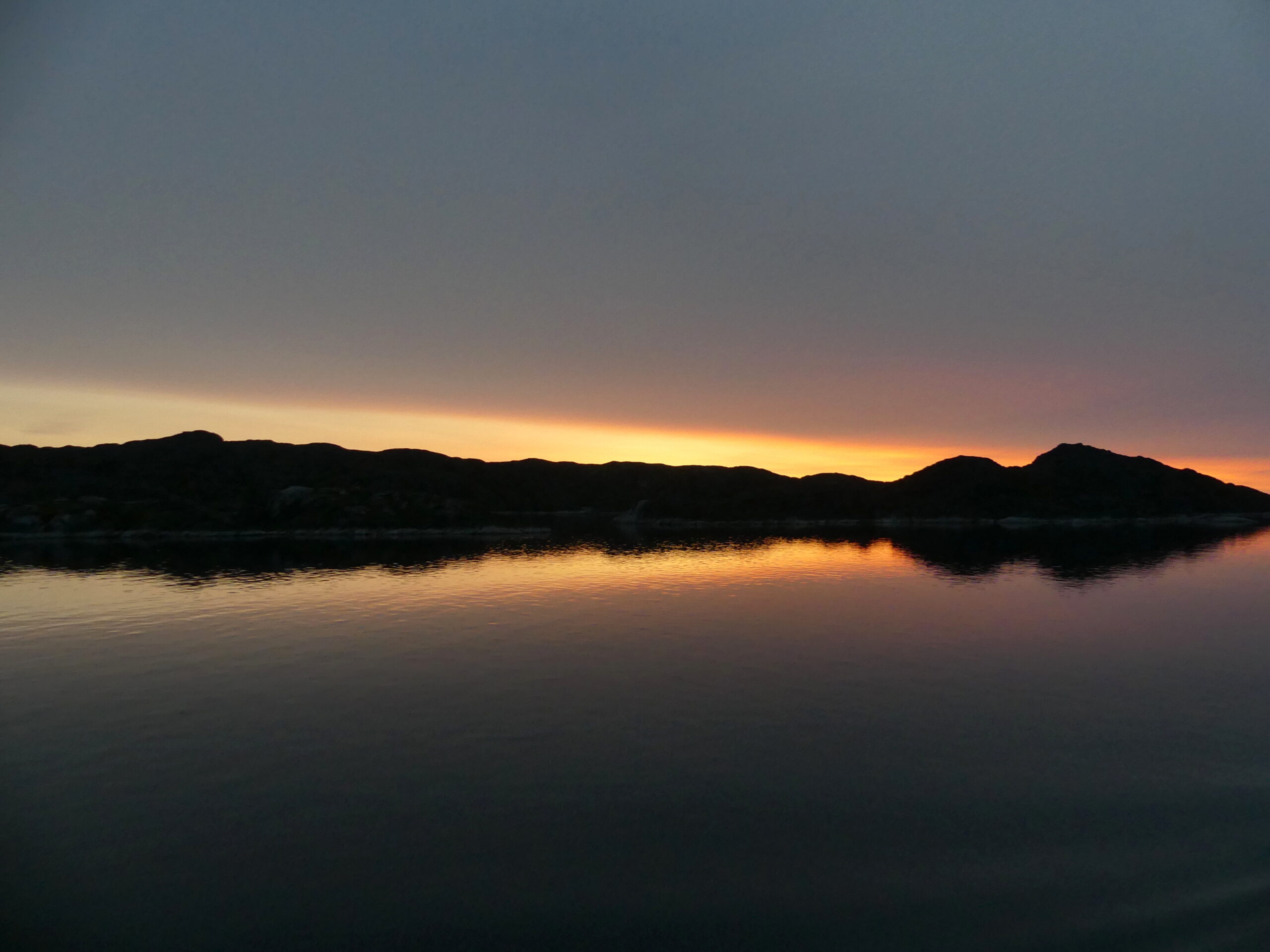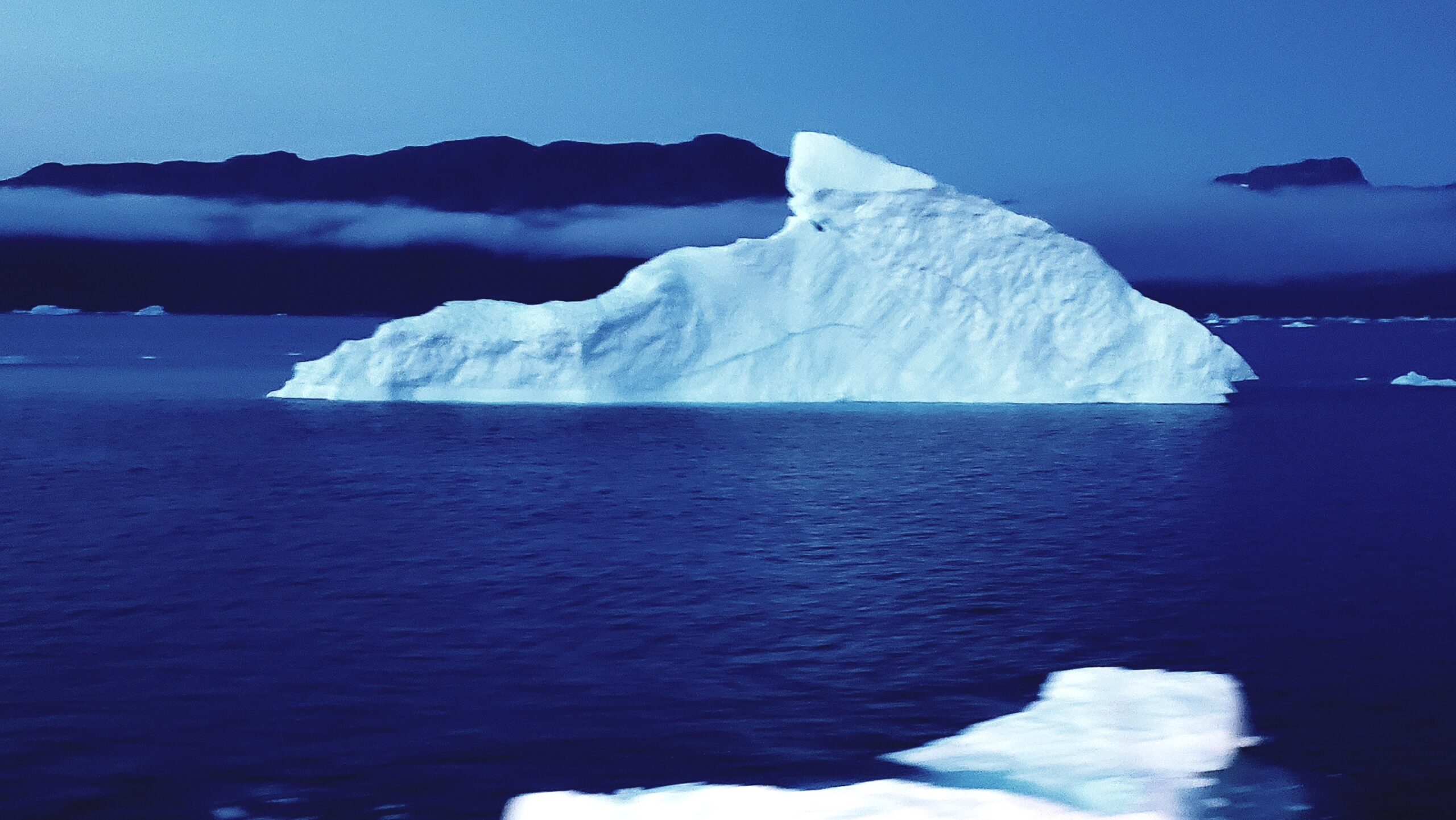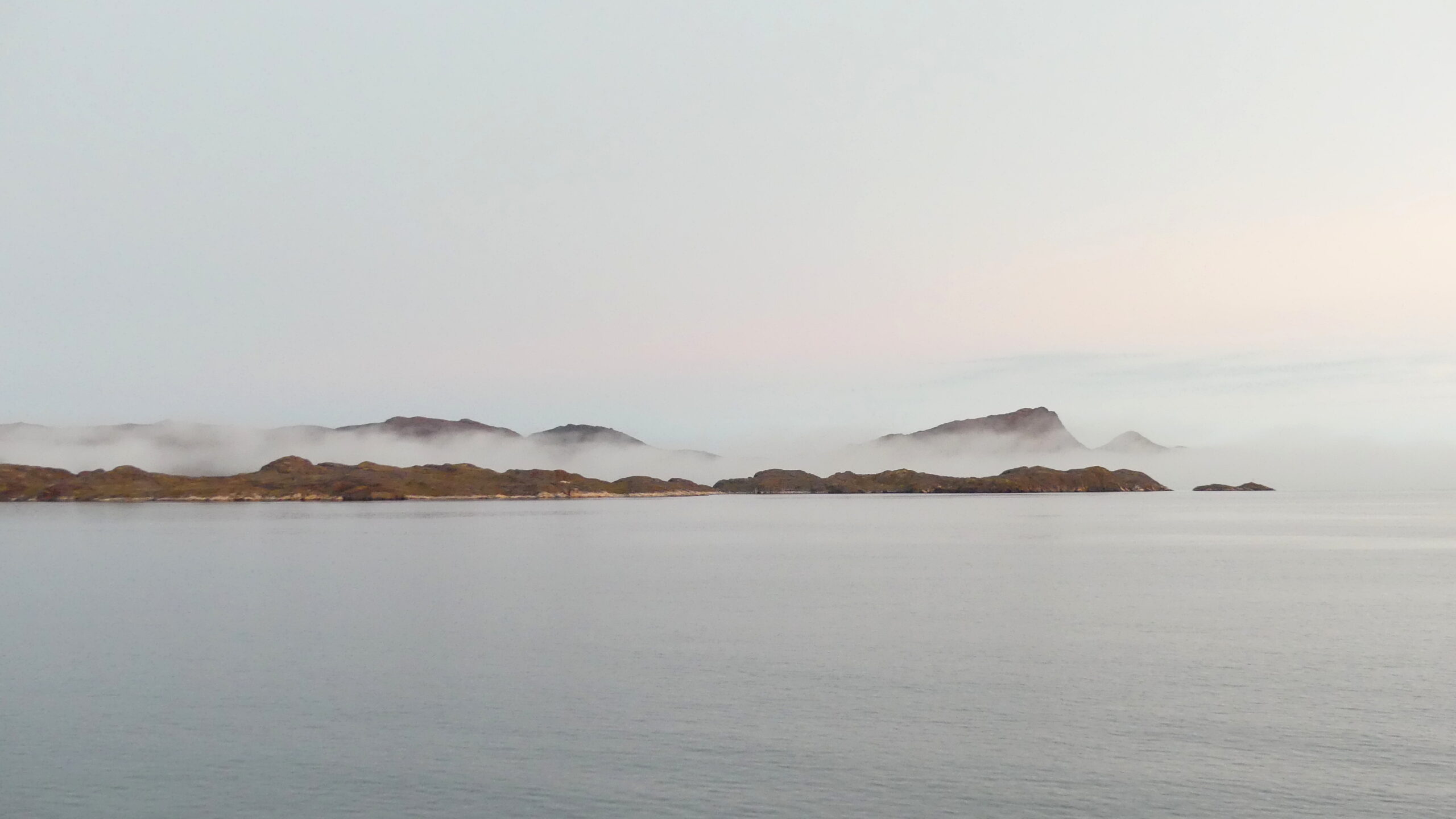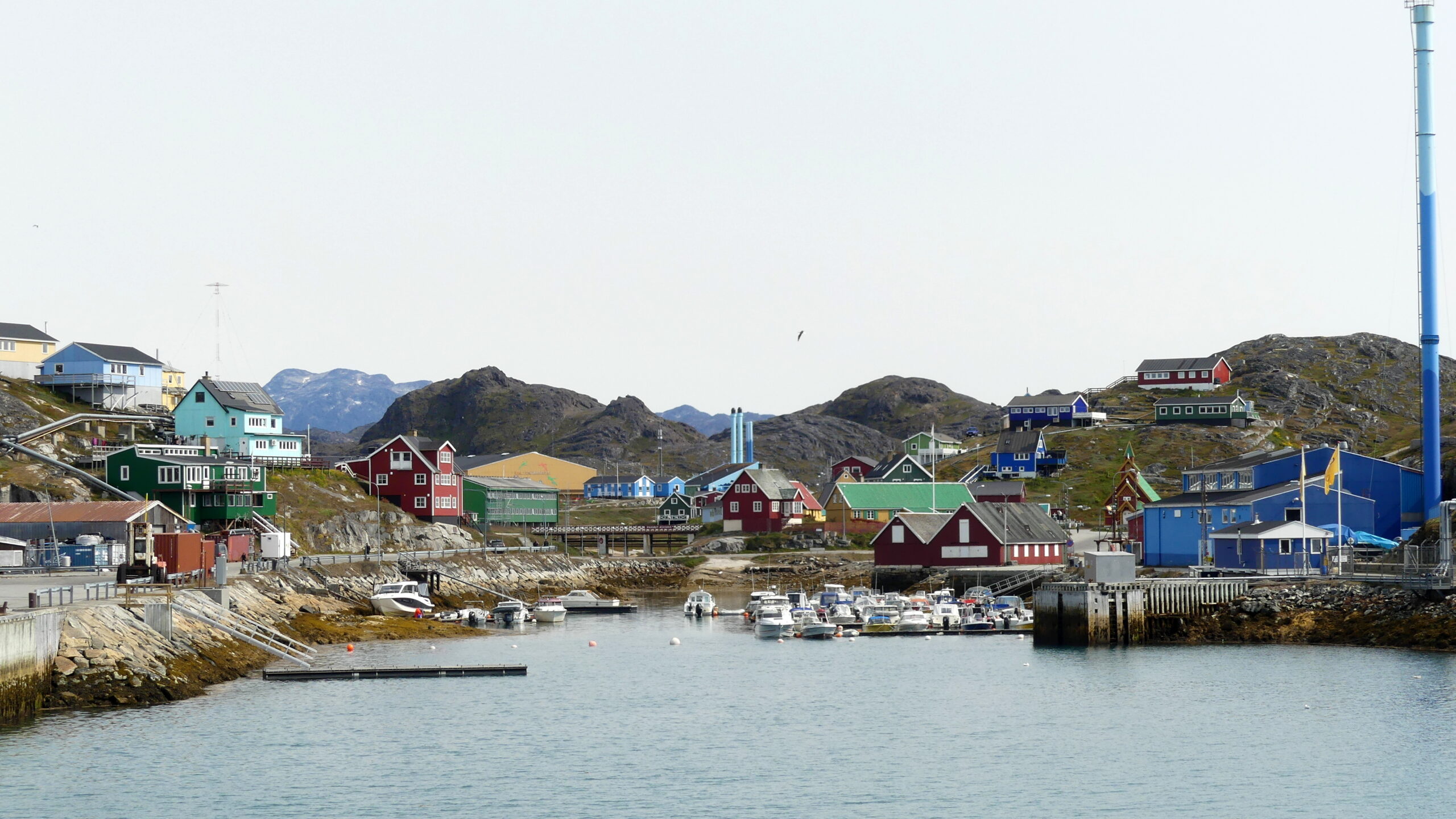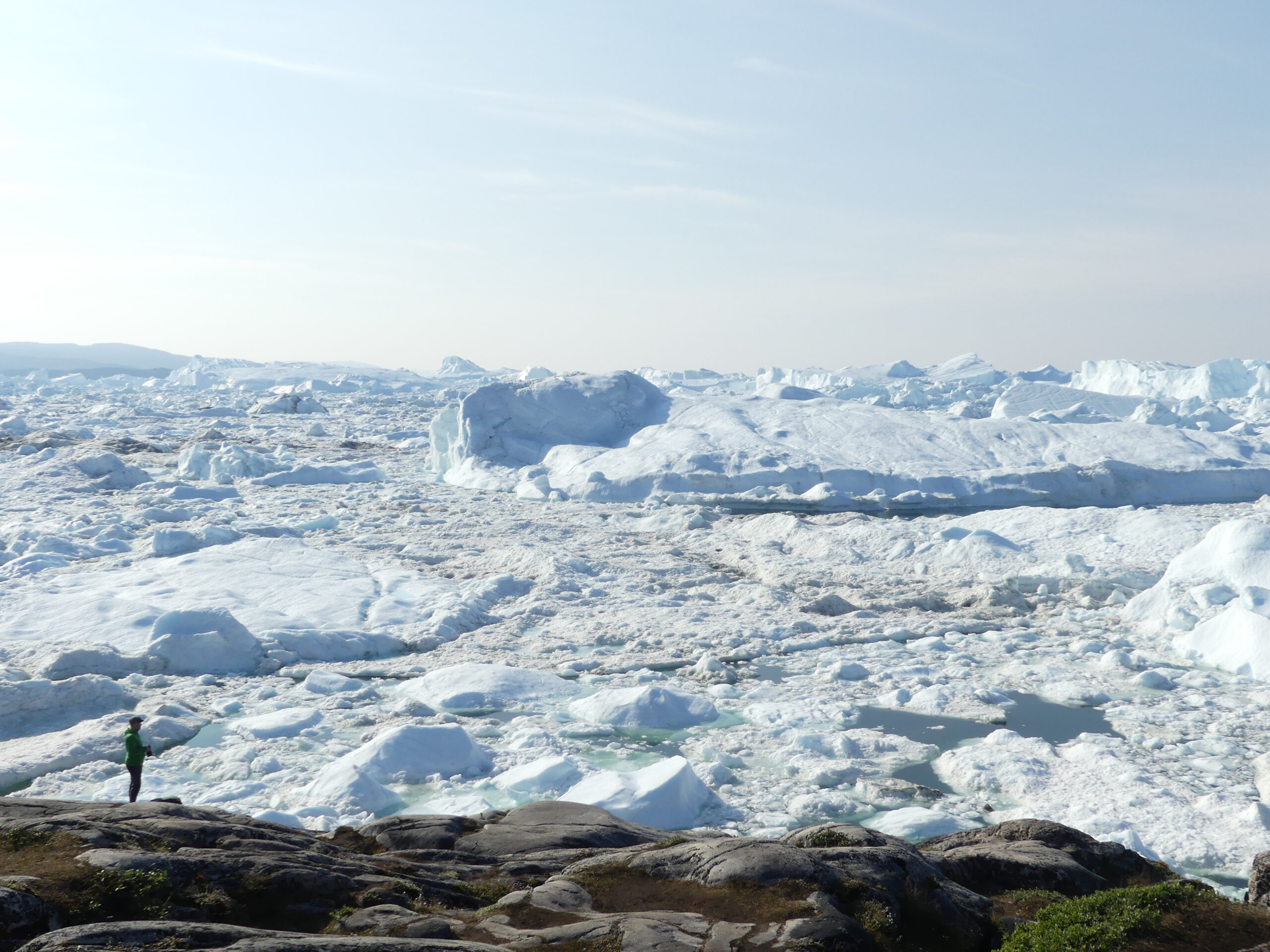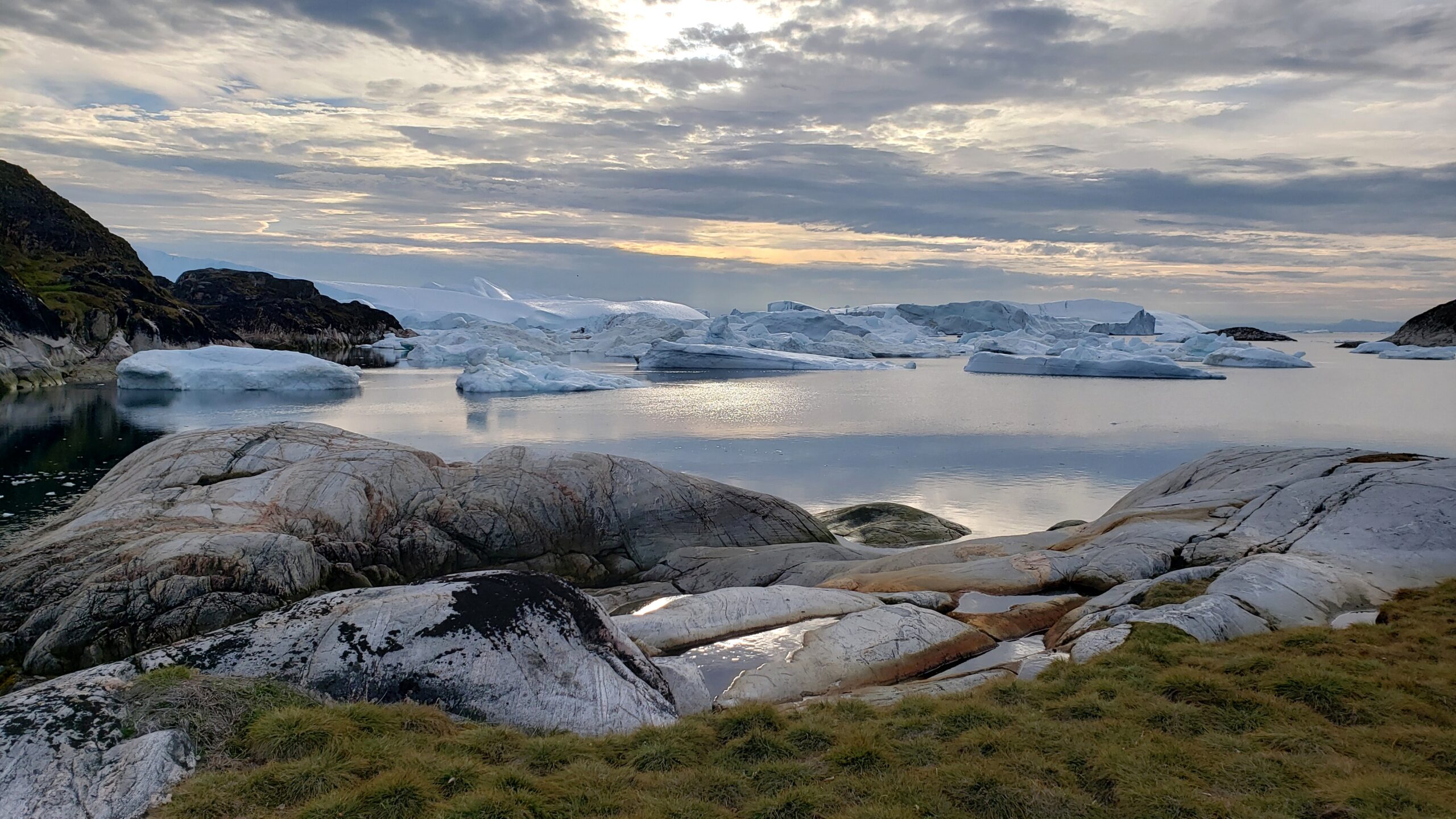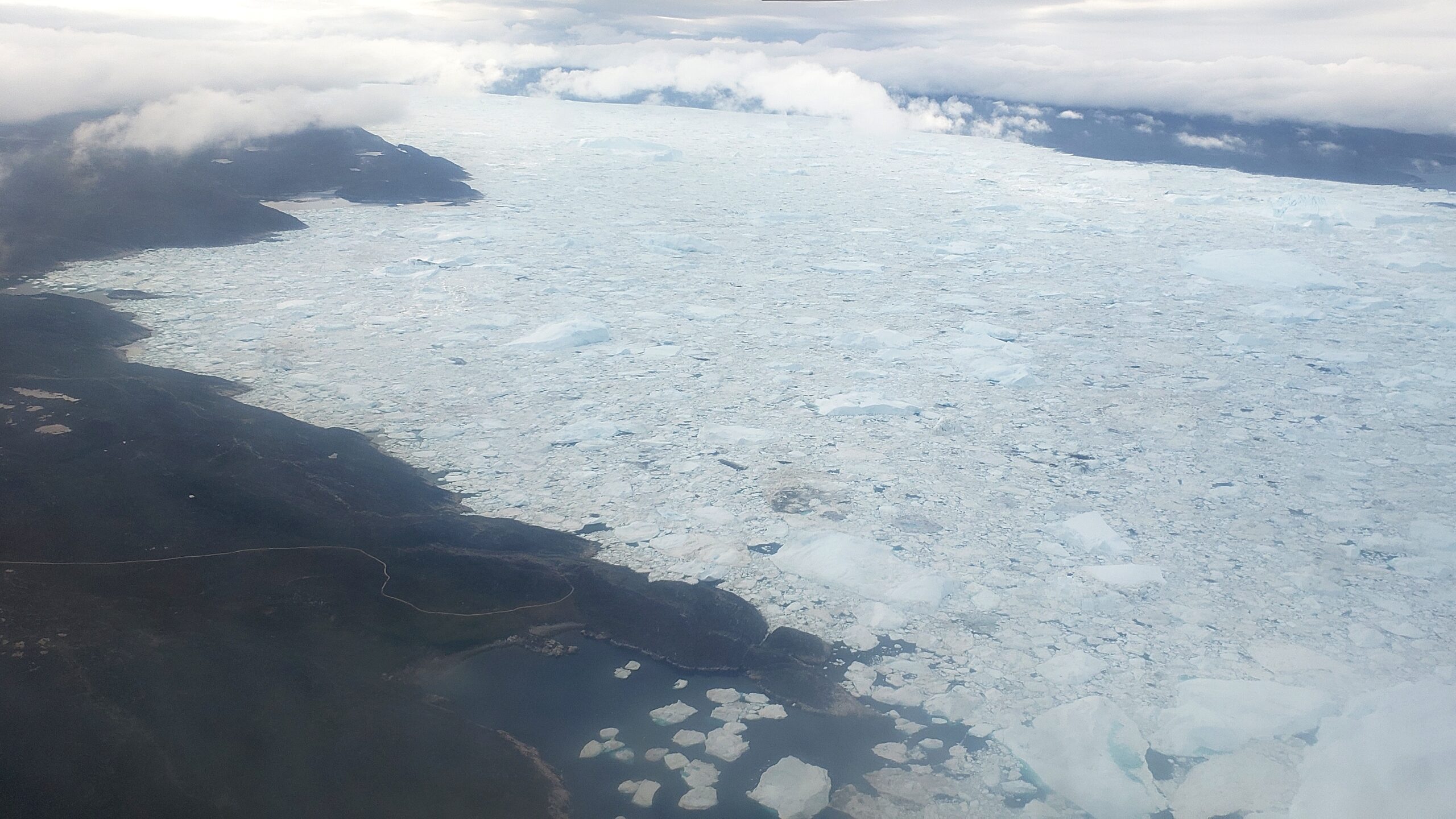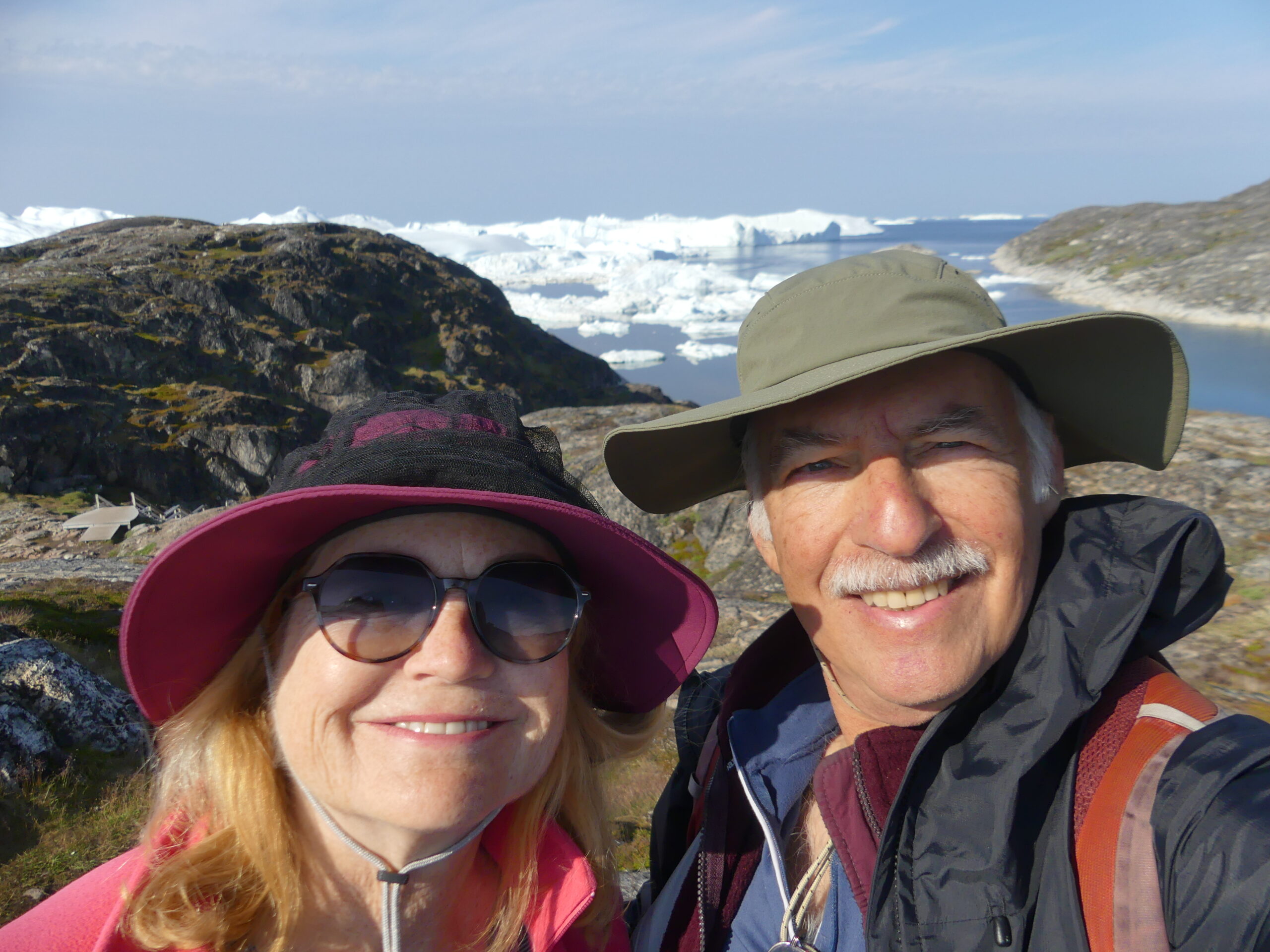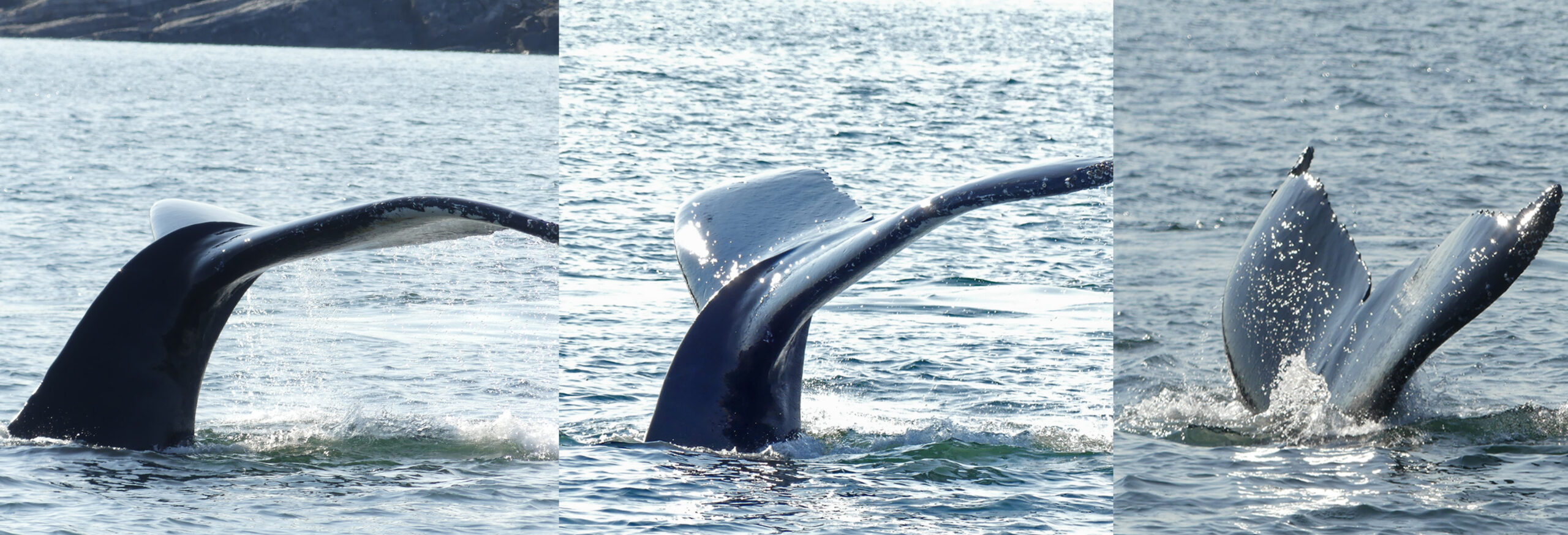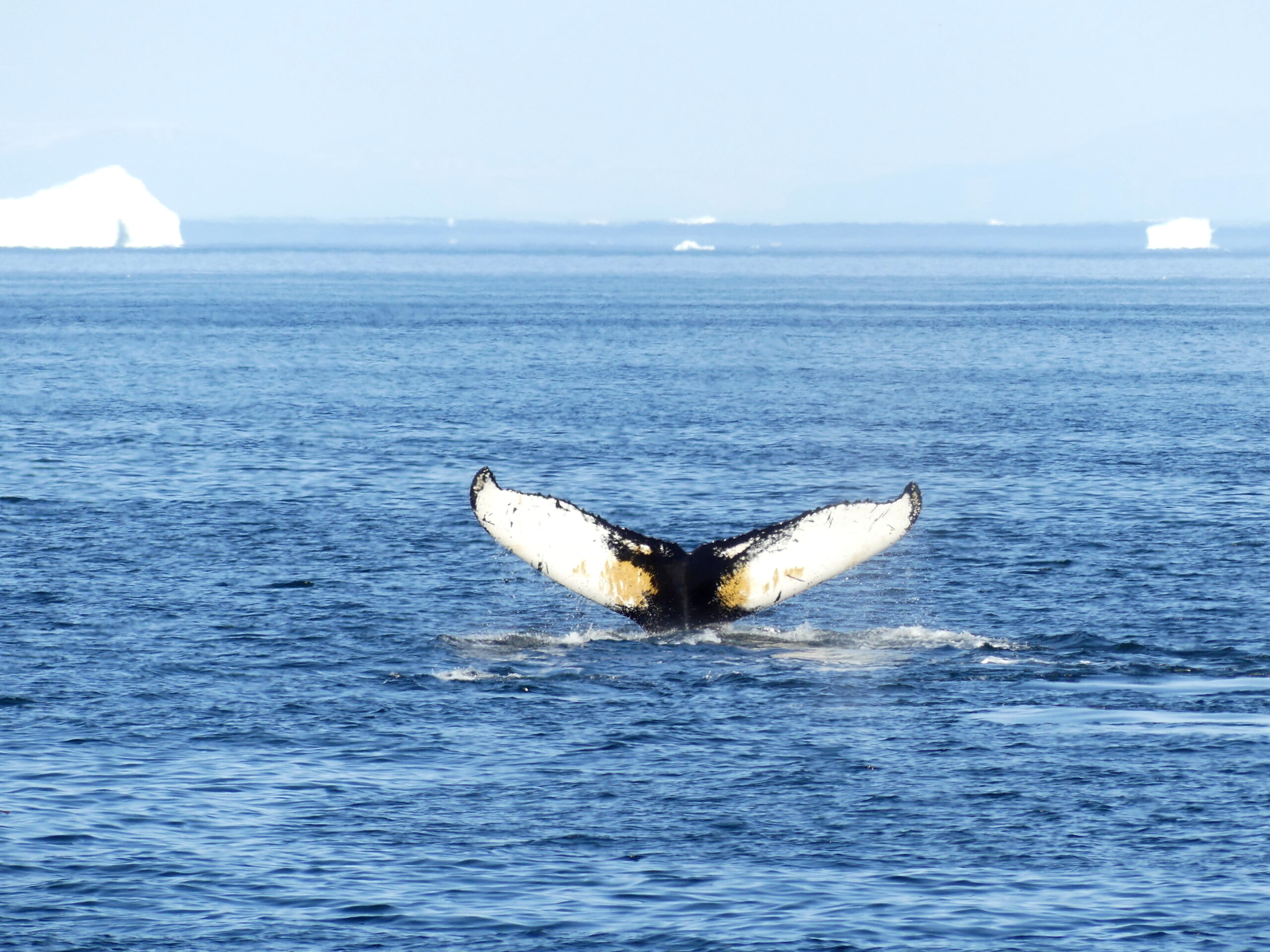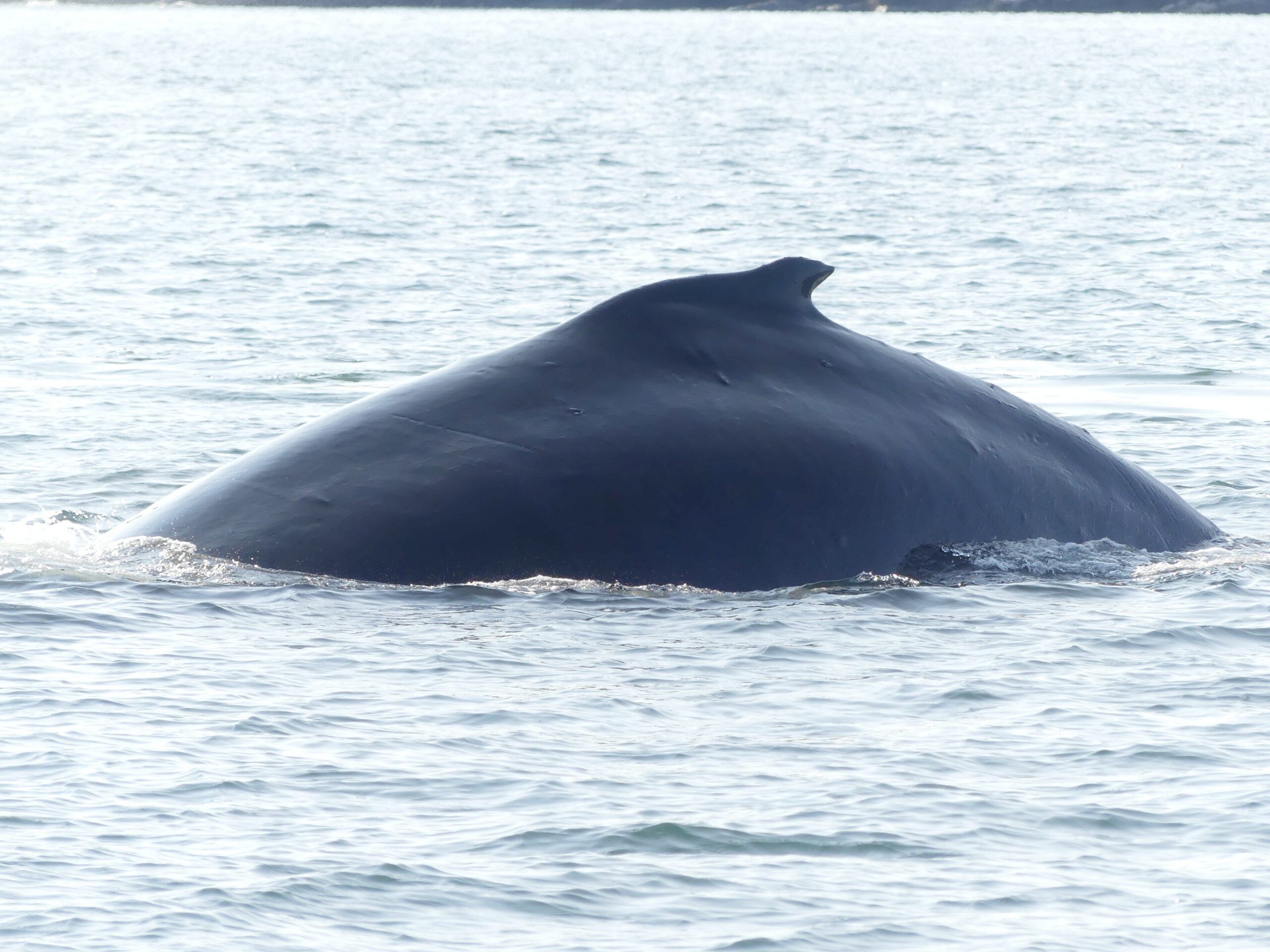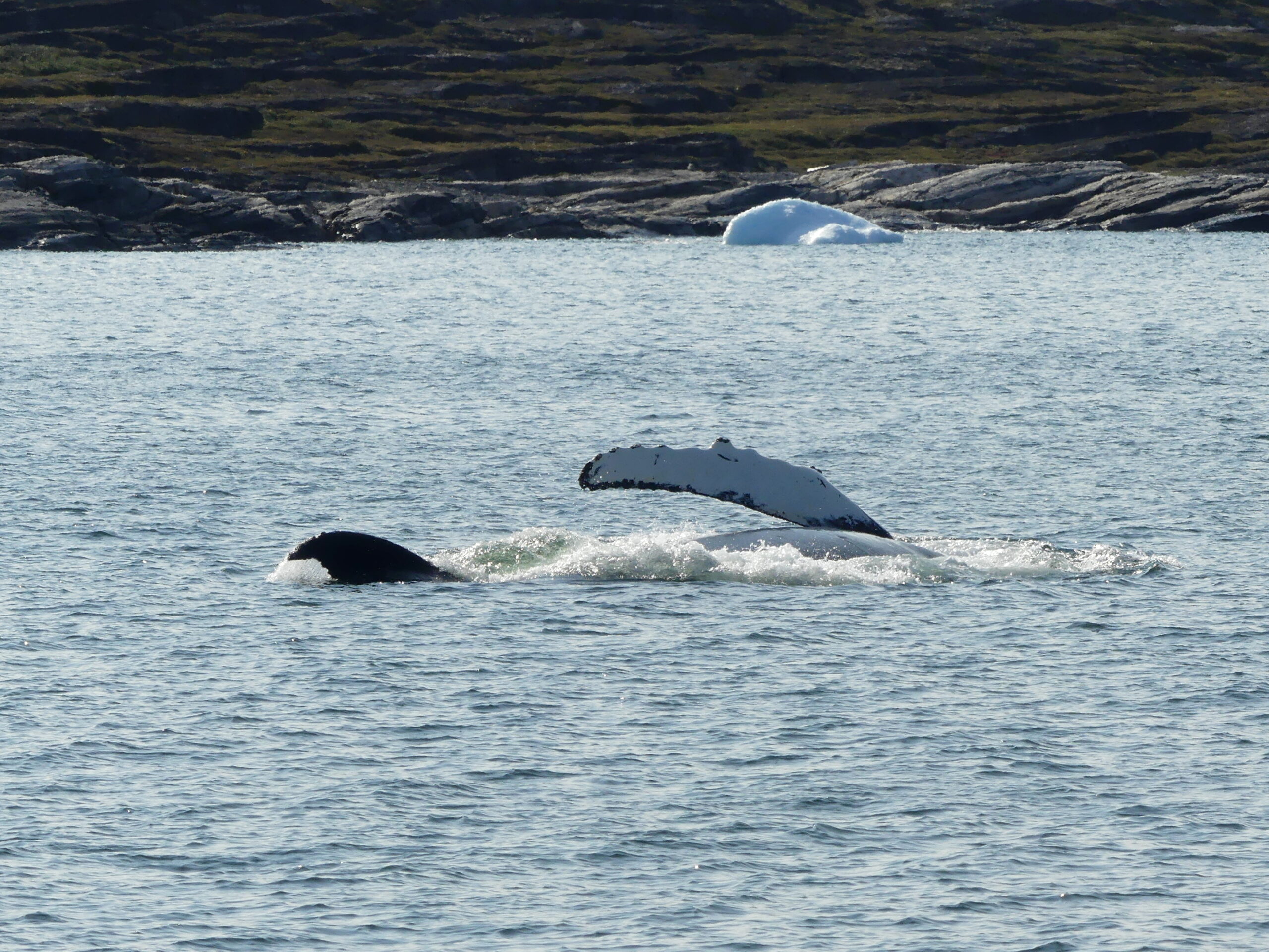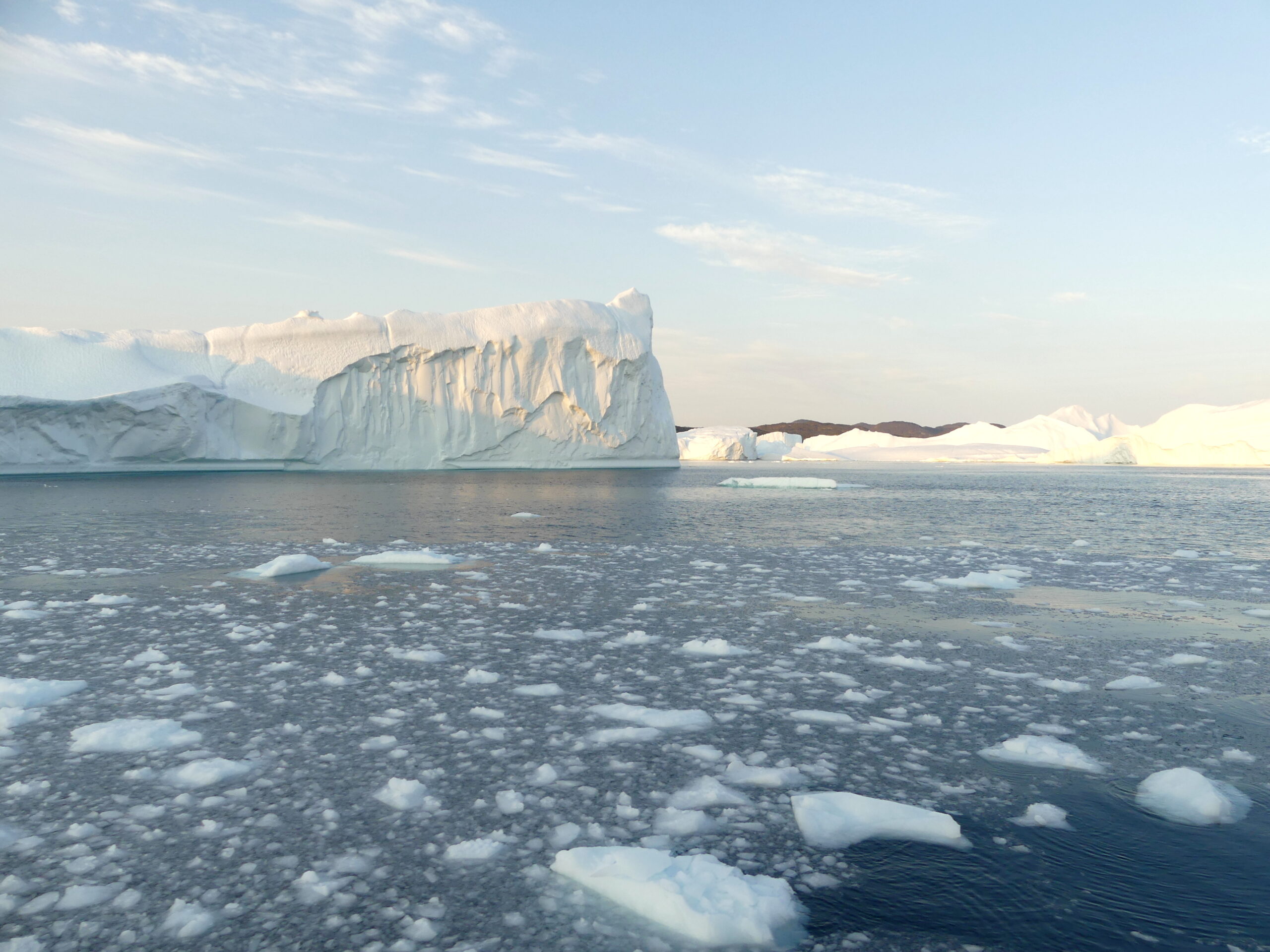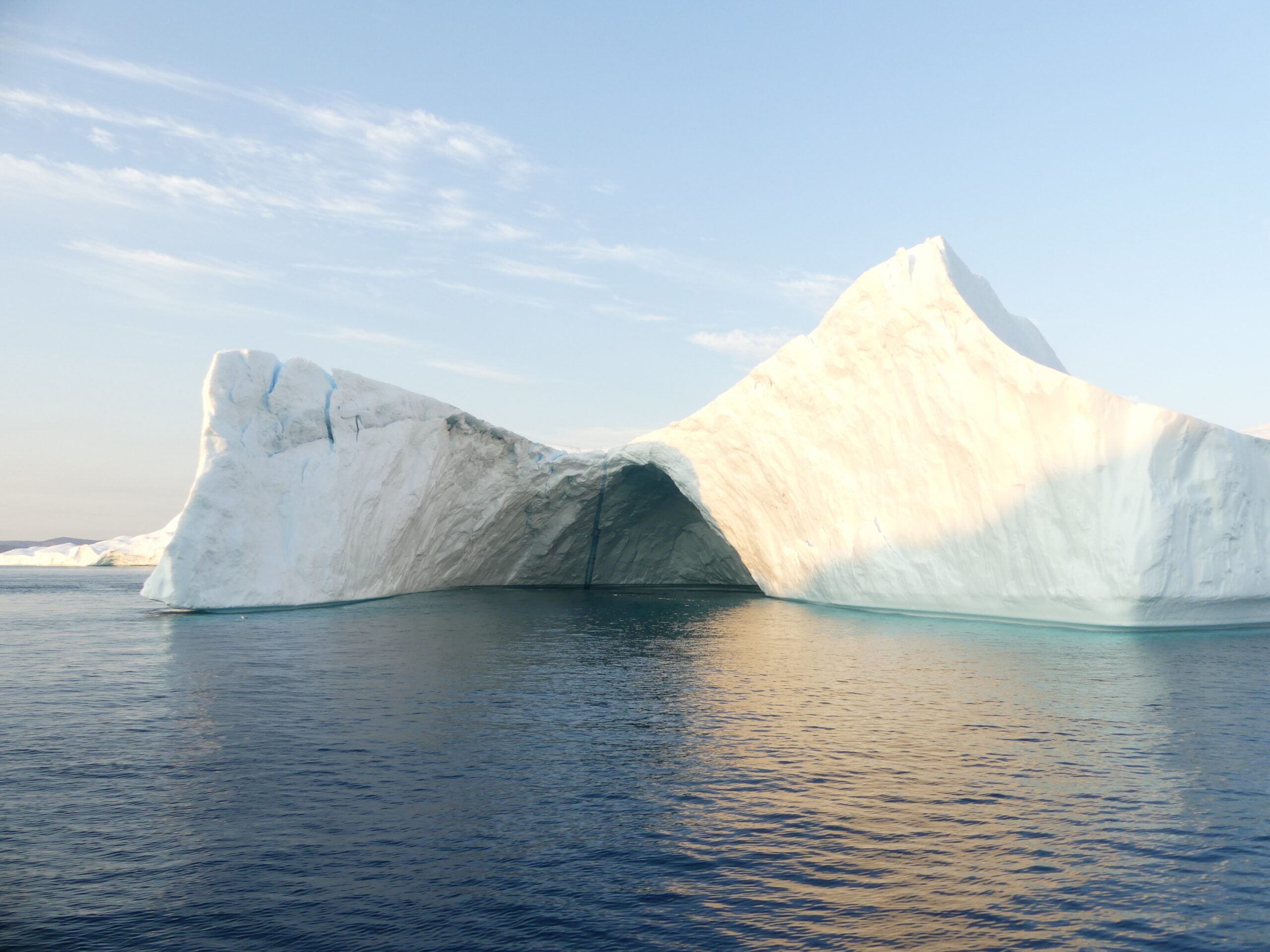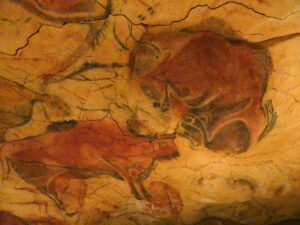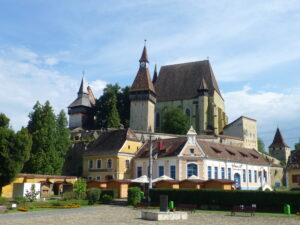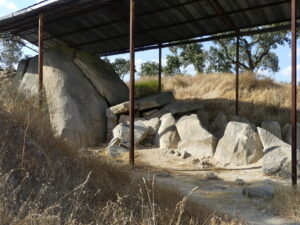Our destination, Disko Bay, was spectacular, but the ferry journey to it along Greenland’s western coast was also memorable.
The Journey: Ferrying from village to village
Our mobile, floating home for four days was the ferry boat that carries visitors and local passengers up and down the western coast of Greenland. Surprisingly, our cabin was ample in size, and very comfortable.
From our starting point at Narsaq to the northern end point at Disko Bay (Ilulissat), we sailed about 1500 kilometers (900 miles) through placid and picturesque fjords as well as gently rolling seas.
Along the way the ferry loaded and unloaded people at eight villages, which are only connected by water transport like this, plus Nuuk the capital. We were also treated to the dazzling fjord-scapes of the country, when the ever-shifting fog layer allowed.
The Sarfaq Ittuk ferry offers 24 cabins and several shared hostel-style rooms. Its cafeteria pushed out three extensive meals per day that appealed to both the traveling villagers and the foreigners.
Narsaq was our starting point for the water journey. Though this town was larger than most, such colorful homes scattered about the hills of a town are typical of west Greenland.
The ferry often snakes through narrow passages like this amid the islands and fjords in order to reach the small villages – or perhaps just to present picturesque scenes to passengers.
When the evenings are clear, sunsets seem to last for hours. Just before the sky cleared, the sun illuminated the clouds like a Turner seascape.
The evening passage along a fjord often slips by floating icebergs. Notice the fog layer on the mountain. It soon enveloped the boat farther out toward the sea.
Or could envelope the land…
A brief stop at the town of Paamiut, a very typical small village, to exchange a handful of passengers.
The Goal: Disko Bay
At the end of our four-day trip and one final day of turbulent seas, our ferry entered the huge waterway of Disko Bay. We were greeted by two spectacular sights: the myriad floating icebergs broken off from the Ilulissat Glacier and several humpback whales feeding near them.
Later we added one more, the crush of ice and bergs in the World Heritage icefjord itself. During our stay here, we avoided collisions with both the animals and the ice, while discovering more about them.
Ice fjord
At the edge of the World Heritage icefjord of Ilulissat. The icefjord extends 60 kilometers (about 35 miles) upland from the bay to the actual glacier and it stretches 6 kilometers (4 miles) across.
View of the icefjord from a hiking trail, up a few kilometers from Disko Bay. To the right is the crush of icebergs caught at the moraine, the shallow mouth of the outflow filled with built up stone and earth. Here we caught a glimpse of two Arctic foxes.
The glacier itself, the largest in Greenland, is a storehouse of hundreds of thousands of years of the earth’s climate. Researchers pull ice samples from deep within and therefore back in time to assess particulates fallen with the rain and snow, as well as the air bubbles trapped, when all is fast frozen yearly. Sulfur first appeared in the ice samples due to Roman expansion and industry; current samples vividly show the accelerating deterioration of the environment since the industrial age.
The sun streaks through the clouds at Serermiut on Disko Bay, site of the old village at the edge of the icefjord.
The Ilulissat icefjord from the air, with part of Disko Bay at the bottom.
Along the Ilulissat icefjord
Whales
Disko Bay is full of feeding humpback whales like these we saw, regularly rising to the surface amid the huge icebergs that have calved from the Ilulissat glacer. Hidden to sight is most of the rich, complex ecosystem of Disko Bay – its plankton, krill, algae and the feeders off these: shrimp, seal, and other predators like our whales.
We saw many diving elegantly and smoothly near us, perfect 10s at the Olympics – including, farther off, a mother and her calf.
Each tail is as distinctive as a fingerprint. This whale stayed near us for a long time.
The hump of a humpback, showing off its powerful musculature. Their numbers in the bay can be dangerous for the boats buzzing about. But more dangerous, the pilots say, is the “black ice,” which is actually clear and transparent in the dark waters.
The fin of a humpback waves out of the water as the whale rolls its huge body. We eventually learned that this was often the first sign of its return to the surface before blowing out water to breathe, then cruising before diving again.
Icebergs
We cruised Disko Bay amid the icebergs one evening. Sunset tinged this massive one and revealed the texture of the wind’s erosion on top. The viewable parts of the icebergs from the icefjord are huge. But 90% of the ice chunk, incredibly, is still below the surface.
From Disko Bay, the glacier has launched icebergs as far south as the balmy Azores and, in 1912, sunk the Titanic with one.
Cruising on Disko Bay, a unique and astonishing landscape. A popular moment of such a cruise is toasting the experience with ice chunks like these: they make lots of noise in one’s glass as the ice melts and the bubbles are released.
Inevitably odd configurations show up amid the huge number of icebergs on the bay.
(To enlarge any picture above, click on it. Also, for more pictures from Greenland, CLICK HERE to view the slideshow at the end of the itinerary page.)


